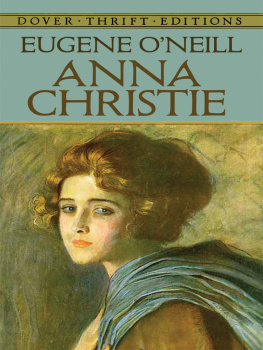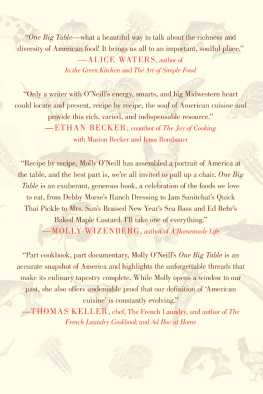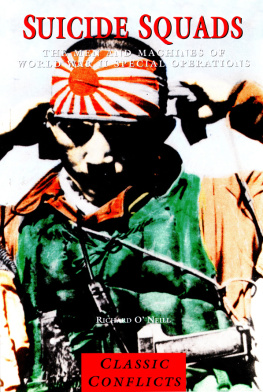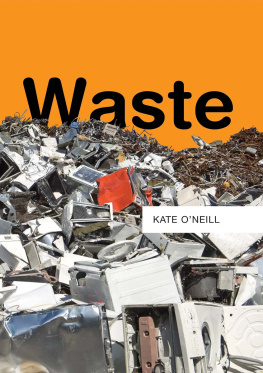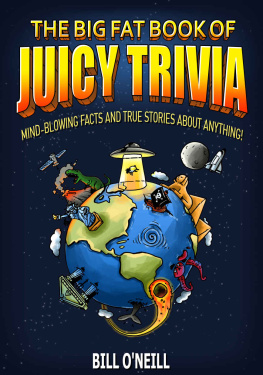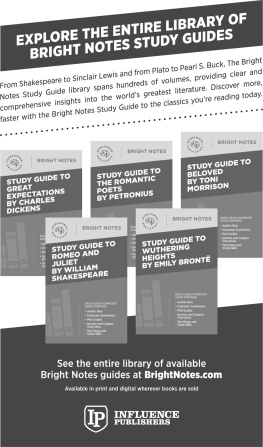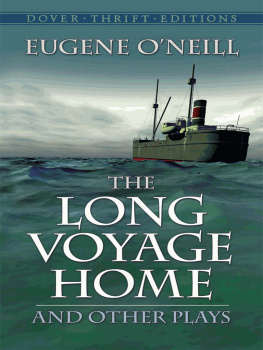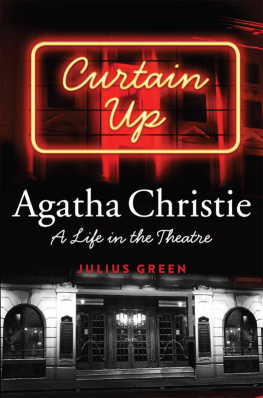DOVER THRIFT EDITIONS
Anna Christie
EUGENE ONEILL

DOVER PUBLICATIONS, INC.
Mineola, New York
DOVER THRIFT EDITIONS
EDITOR OF THIS VOLUME: GLENN MOTT
Copyright
Copyright 1998 by Dover Publications, Inc.
All rights reserved.
Theatrical Rights
This Dover Thrift Edition may be used in its entirety, in adaptation or in any other way for theatrical productions and performances, professional and amateur, in the United States, without fee, permission or acknowledgment. (This may not apply outside of the United States, as copyright conditions may vary.)
Bibliographical Note
This Dover edition, first published in 1998 and reissued in 2016, is an unabridged republication of the work as first published by Boni and Liveright, New York, in 1922. A new introductory Note has been prepared specially for this edition.
Library of Congress Cataloging-in-Publication Data
ONeill, Eugene, 18881953.
Anna Christie / Eugene ONeill.
p.cm. (Dover thrift editions)
An unabridged republication, from a standard source, of the work as first published in 1922. A new introductory note has been prepared specially for this edition T.p. verso.
Includes bibliographical references.
eISBN-13: 978-0-486-15921-8
1. Young women New York (State) New York Drama. 2. Fathers and daughters New York (State) New York Drama. I. Title. II. Series.
PS3529.N5A91998
812'.52 dc21
97-43583
CIP
Manufactured in the United States by RR Donnelley
299856022016
www.doverpublications.com
Contents
Note
ANNA of Chris Christopherson, the failed play from which Anna Christie was salvaged, had been a prim tea drinker, a respectable typist raised in England whose most flagrant oath was By jimminy; she discovers her mystical connection with the sea after being reunited with her father, a cantankerous old man who dominates the play. In November 1921, Anna Christie, a reformed prostitute, walks into a bar and commands one of the great lines in American theater: Gimme a whiskey ginger ale on the side.... And dont be stingy baby. This time around her father has sent her to live with cousins in Minnesota to protect the child from dat old davil sea. Now she has come back, a woman with a past and lingo to match, an unstable combination of flapper, trollop, and daddys girl. The play was enthusiastically reviewed and ran for 117 performances, earning Eugene ONeill (18881953) the second of four Pulitzer Prizes.
In spite of its popular success, ONeill, always a self-torturer, developed reservations that were clearly residual of the writing process and the plays many revisions. The main problem seemed to be that what began as a play about a womans father became a play about the woman herself. ONeills ambition had been to compose a naturalistic drama that showed characters doomed by dark, inexorable, and mythic forces in connection with the sea. Chriss augury and hatred of the sea formed the core of an ONeill tragedy. The shift in emphasis from Chris to Anna in the title role led to a stubborn dilemma. Annas unity with Burke would not allow the drama to evolve into one of frustrated destiny. Annas inland debauchery, the apparent ease with which she takes to the waterfront, and the lover she gets from the sea, defy Chriss prophecies of evil, and reduces his antagonism of the sea to the level of a personal idiosyncrasy. The plays central thematic concepts refused to merge, and in ONeills opinion, and that of his critics, the dark irony of the conclusion was lost on audiences who preferred the fulfillment of the love interest.
ONeill regretted that the ending of Anna Christie gave a happy-ever-after impression he never intended, The happy ending is merely the comma at the end of a gaudy introductory clause, with the body of the sentence still unwritten. The implication, by the logic of ONeills naturalism, was that the decision of fate rests with the sea. The conclusion is a temporary alliance between the three main characters, whose sexual and psychological rivalries are bound to be resurrected after the curtain falls. He was tampering with the romantic archetypes of a bygone era: the prostitute with a heart of gold, the childishly self-willed Chris, Burke the chastened chauvinist; and he was making them work within a modern context of ambiguous motivations. ONeill was not at all comfortable with the notion that he had written romantic comedy.
Initially, ONeill made several attempts to defend the conclusion against the charge of sentimentalism. He felt he had not sufficiently pointed out the tentativeness of the ending in Chriss last brooding words. In a defense published in the New York Times, he appeared stymied by the obstinacy of his characters, It would have been so obvious and easy...to have made my last act a tragic one. It could have been done in ten different ways.... But looking deep into the hearts of my people, I saw that...they would act in just the silly, immature, compromising way that I have made them act. In an even more awkward defense, ONeill, never a neglected artist, wrote that the writing had been too easy, that he had deliberately employed all of the Broadway tricks which I had learned in my stage training. His attempt to render a tragic ending aside, the play succeeds because it contains a certain incomplete fusion of comedy and tragedy most characteristic of real life. The result of the dual nature of the play is that Anna Christie is one of the few comedies to succeed in a naturalistic mode.
Characters
JOHNNY-THE-PRIEST
TWO LONGSHOREMEN
A POSTMAN
LARRY, bartender
CHRIS CHRISTOPHERSON, captain of the barge Simeon Winthrop
MARTHY OWEN
ANNA CHRISTOPHERSON, Chris daughter
THREE MEN OF A STEAMERS CREW
MAT BURKE, a stoker
JOHNSON, deckhand on the barge
Anna Christie
ACT I
SCENE: JOHNOT-THE-PRIESTS saloon near South Street, New York City. The stage is divided into two sections, showing a small back room on the right. On the left, forward, of the barroom, a large window looking out on the street. Beyond it, the main entrance a double swinging door. Farther back, another window. The bar runs from left to right nearly the whole length of the rear wall. In back of the bar, a small show-case displaying a few bottles of case goods, for which there is evidently little call. The remainder of the rear space in front of the large mirrors is occupied by half-barrels of cheap whisky of the nickel-a-shot variety, from which the liquor is drawn by means of spigots. On the right is an open doorway leading to the back room. In the back room are four round wooden tables with five chairs grouped about each. In the rear, a family entrance opening on a side street.
It is late afternoon of a day in fall.
As the curtain rises, JOHNNY is discovered. JOHNNY-THE-PRIEST deserves his nickname. With his pale, thin, clean-shaven face, mild blue eyes and white hair, a cassock would seem more suited to him than the apron he wears. Neither his voice nor his general manner dispel this illusion which has made him a personage of the waterfront. They are soft and bland. But beneath all his mildness one senses the man behind the mask cynical, callous, hard as nails. He is lounging at ease behind the bar, a pair of spectacles on his nose, reading an evening paper.
Two longshoremen enter from the street, wearing their working aprons, the button of the union pinned conspicuously on the caps pulled sideways on their heads at an aggressive angle.

